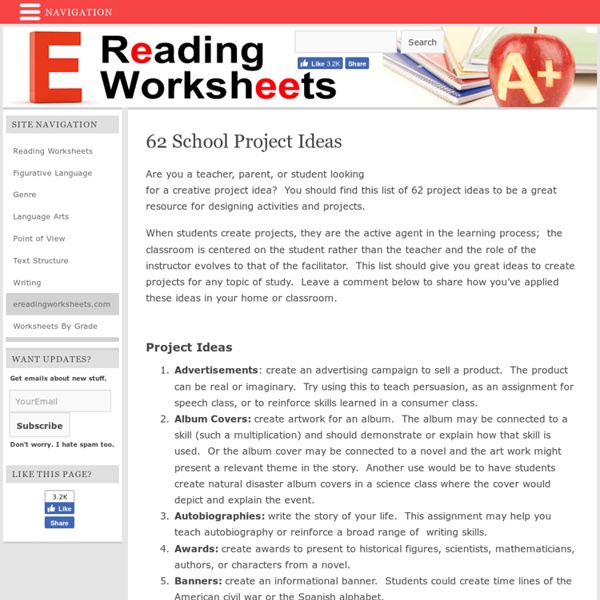Characterization Worksheets
Why the 21st Century Classroom May Remind You of Starbucks
It’s been my dream to make my 2nd grade classroom look more like a “Starbucks for kids”, and less like, well, a classroom. Think about when you go to Starbucks to complete some work. Why do you choose to work there? As I sat in our local Starbucks this past summer, I looked around and thought—why can’t my classroom look like this? After several weeks of planning and a little bit of faith, what resulted was this: But how did I get to this point? What did your process look like? Before I even purchased a single thing, I thought about why I was doing a classroom redesign. After consulting Erin Klein, a classroom design guru who has been “ditching her desks” to avoid “the cemetery effect” for a few years now and sharing her experiments on her blog, I thought about my classroom and the traditional chairs and tables I was given—and I came up with a plan. Now, I have a large, open area for whole group instruction and five remaining tables, each designed with a specific purpose:
72 Creative Ways for Students to Show What They Know
As we all know, students already get plenty of tests, so why not let your students show what they learned creatively? Whether your students are reading independent books or your class has just finished a unit on space or pioneers, a culminating project can really cement that learning. Here are 72 fun and creative ways for your students to show what they know:Create a posterMake a PowerPoint PresentationDesign a modelMake a shoebox dioramaUse a three-panal display board Make a timelineCreate a board game incorporating key elements. Have you done one of these with your students? How did it go?
101 Research Paper Topics
By definition a research paper requires the writer to learn a great deal about their subject, so it is always a good practice to select a topic that truly interests you before you begin gathering sources. If you are interested in your topic, learning about it will be more pleasurable and you will write with greater passion, so choose your topic thoughtfully. Use the following list of 101 research paper topics as a starting point for your paper. As you begin learning and writing about your topic, you should revise or amend your research question or thesis statement to better match the information that you are interpreting, analyzing, and expressing. Download this list in RTF formatDownload this list in PDF format By: Mr. Why do we sleep? I hope this list will help you choose a topic for your research paper. Looking For More Resources?
Technology Programs – Upham Woods Outdoor Learning Center
Program Overview and Goals The Digital Observation Technology Skills (DOTS) program is an outdoor environmental education lesson that uses modern mobile technology tools to connect today’s students to the outdoors in new and innovative ways. This inquiry-based lesson navigates the basics of the scientific method and focuses on the importance of good scientific communication and sharing discoveries with others. Students work in groups to test simple hypotheses from the environmental and ecological differences across the local landscape using data and observations collected in the field. Participants use the technology tools found in the DOTS kits to make observations, take measurements, explore the micro and macro details of their environment, and learn how to embrace their inner scientists. They collect digital artifacts to test their hypothesis including both quantitative and qualitative data. Budding meterologists collect weather data using DOTS tools The DOTS Kits Design Considerations
Constitutional Principles Videos - Bill of Rights Institute
Constitutional Principles Videos These videos are possible through the generous support of the Jack Miller Center. Separation of Powers Do you understand why separation of powers is important for protecting our freedom? This short, engaging video focuses on the constitutional principle of separation of powers. Consent of the Governed Do you understand the principle of consent of the governed? Rule of Law Do you understand why the rule of law is important for maintaining free society? Representative Government Video You’ve told us that students often confuse republics and democracies.
English news and easy articles for students of English
Citizen-based Monitoring Partnership Program
Since 2004, the Wisconsin Department of Natural Resources and Wisconsin's "Citizen-Based Monitoring Partnership Program" have sought to expand citizen and volunteer participation in natural resource monitoring by providing funding and assistance with high priority projects. Qualifying topics include monitoring of aquatic and terrestrial species, natural communities, and environmental components such as water, soil and air. Who can apply Individuals, businesses, non-profit organizations, tribal organizations or governments, local and county governments, academic institutions or state agencies which are registered in the Wisconsin State Vendor File may apply. Eligibility Eligible projects Ineligible items purchase of boats, vehicles, furniture, or supplies and equipment not directly used in training or monitoring Deadlines Help Contact information For questions, contact:



